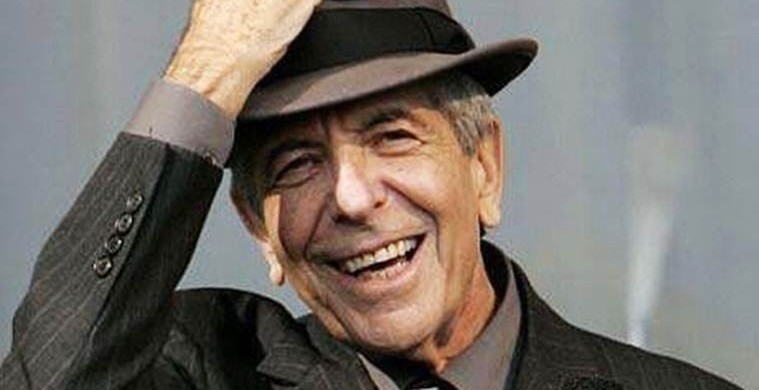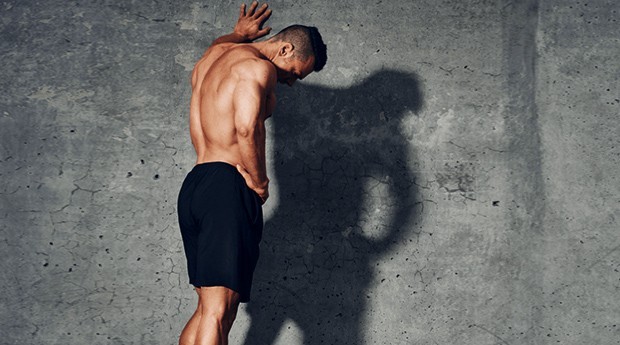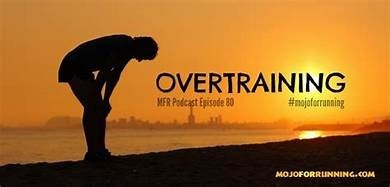MY RECENT EXPERIENCE
It is always a good idea to change a workout routine after a couple of months or so. Physical, mental and emotional burnout are lurking constantly. We need to “refresh” more often than we may think.
For the last several months, I was working out every day and feeling guilty if I even thought about missing a day. I was doing 14-15 sets of upper body resistance training every day, after which I did a 30-minute treadmill routine. My upper body exercises were in a push / pull plan. Pushing for chest and triceps, pulling for back, biceps and shoulders. Abdominals every day.
This was more a high rep routine than one with heavy resistance. It didn’t seem unreasonable and still doesn’t, but I began to lag in my enthusiasm. I decided to do no workout at all on Sundays, which helped. But I began to experience insomnia. Also, I woke up with soreness.
I thought of Leonard Cohen singing “I ache in the places where I used to play”.

Leonard Cohen, now deceased, was a great poet, songwriter and gravel – voiced singer…..one of my all – time favorites. Here is the song that came to mind:
Leonard Cohen, the Tower of Song
Back to my personal experience: I found that I needed to do more than merely skip Sunday workouts. My current routine is to alternate plan A with plan B every other day. Plan A – 7 abdominal exercises and 30 minutes on my treadmill and Plan B – 7 abdominal exercises and 6 heavy upper body resistance movements (no treadmill).
This is sufficient for now and has given me a burst of energy. I will go back to more sets and lighter resistance as soon as I feel the need. We all need to “listen to our bodies”.
SIGNS OF OVERTRAINING
I strongly believe in the importance of having and using a blood pressure / pulse device. Strength coach Dan Trink, C.S.C.S., says “Altered resting heart rate is the result of an increased metabolic rate to meet the imposed demand of training”. An unusually high or low resting heart rate suggests the need for a doctor visit.
Insatiable thirst may indicate overtraining if this coincides with increased workout time. Jay Cardiello, C.S.C.S., says dehydration may indicate that “your body might be in a catabolic state, meaning it’s starting to consume its own muscle protein”.
Jay Cardiello also warns against extended muscle soreness. “It is normal to have sore muscles for a day or two after a workout. But if you’re still sore past the 72 hour mark, be sure to schedule a break and rest”.
Insomnia is addressed by Mike Duffy, personal trainer and holistic nutrition consultant. He says lack of sleep is “most likely a result of a combination of nervous system and or hormonal system overload”. He is especially concerned with the hours between 10 PM and 2 AM since these are the hours “where physical restoration occurs”. He adds “your body grows while resting, not training” and advises overtrainers to “eat a lot of clean food and take a week off training altogether”.
Depression can be an issue. Exercise is generally good for anyone’s mental health, but overtraining can take us in the opposite direction. Mike Boyce, personal trainer and strength coach, says ” People who overtrain tend to view exercise as something it’s not – namely, a challenge, a conquest, or a space – filler”.
Personality changes may occur. There are those who may undergo intense aggressiveness or irritability. It is important, however, to know that there are many other factors that may overstress the nervous system and this is not always the result of overtraining.
Frequent sickness can be your body’s way of telling you that your immune system is suffering from overtraining. Jay Cardiello says that the process of overtraining means “your body is in a continual catabolic state” and that this lowers immunuty and increases chances of sickness. He suggests that vitamins A and E, as well as glutamine, may be helpful implements.
It makes sense to want to skip a workout once in a while, but decreased motivation is a stronger disinterest that may be the result of overtraining or overexertion. When this happens, Dan Trink recommends “taking a week off, then reducing training volume” upon returning. He also advises us to get “quality sleep”, 7 – 9 hours per night.
Jay Cardiello speaks of the relationship between overtraining and lowered self – esteem. We generally have a healthy sense of accomplishment after an intense workout. But Jay warns us not to become so obsessive that we fall into the trap of thinking that “more is better”, which can lead to both overtraining and a lessening of self – esteem.
Halted progress can be the first sign of overtraining. This is when our bodies stop changing despite our best efforts. Micah LaCerte points out that “when you’re overtraining, your body is going in the opposite direction of growth, because your muscles are torn and all you’re doing is re-tearing them”. “Muscles need a chance to repair and that’s only possible when your body is given the proper time to rest and recover before being forced into more exercise”
OVERTRAINING SYNDROME
Exercise physiologist and fitness consultant Elizabeth Quinn explains that “conditioning requires a balance between overload and recovery” and that too much overload and too little recovery result in overtraining syndrome.
Here are the signs and symptoms, in addition to those already cited above:
- Washed – out feeling, low energy
- Mild leg soreness
- Pain in muscles and joints
- Sudden drop in performance
- Headaches
- Decreased appetite
- Changes in sex drive
- Decrease in training intensity
- Increased incidence of injuries
Heikki Rusko, Ph.D., professor of sports physiology and member of the advisory board at Colorado Altitude Training, LLC, has developed a test of recovery from overtraining. It is called the orthostatic heart rate test. Here are the steps:
- Lie down comfortably for 10 minutes each morning at the same time.
- Then record your heart rate
- Stand up for 15 seconds
- Take a second heart rate
- Keep standing for an additional 90 seconds
- Take a third heart rate
- Keep standing for a total of 120 seconds
- Take a fourth heart rate
A well rested person will show a consistent heart rate between measurements, but a significant increase at the 120 second test will indicate lack of recovery from a previous workout (or fatigue or stress), per Dr. Rusko.
TREATMENT FOR SUSPECTED OVERTRAINING consists of the following:
- Rest and recovery
- Hydration – plenty of fluids. Alter your diet if necessary
- Sports massage – for mental and physical relaxation
- Cross training – to avoid overworking the same muscles
EXCELLENT HELP WITH RECOVERY
These are Amazon links. As an Amazon associate, I may earn from qualifying purchases.
The Athlete’s Guide to Recovery A comprehensive guide to athletic rest, the “bible”.
Ambrosia Overtraining Solution A Superfood
FINAL REMARKS
I have learned quite a few lessons by doing this research. It seems to be difficult for me to remember that rest and recovery are as important as exertion when fitness and strength are goals.
Hopefully, this post will enlighten and provide beneficial instruction to those who choose to lead a healthy and fit life.
As always, please leave any questions or comments in the “Comments” box below. Or e-mail me…richard@myworkoutathome.com.
Thanks for reading. Be well!


